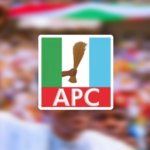As a flagship initiative to reform the business environment, the Presidential Enabling Business Environment Council (PEBEC) was set up in July 2016 to improve the doing-business environment in Nigeria for SMEs by working to eliminate critical bottlenecks, and procedural restrictions to doing business in the country as well as attract investment and diversify the economy to reduce the nation’s reliance on oil.
The ease of starting a business improved by 10 positions, with Nigeria now ranked 120th globally and 22nd in Sub-Saharan Africa, an improvement on its 35th position in the 2018 Doing Business Report. According to the 2019 Report, this leap is attributable to the introduction of simplified preregistration and registration procedures, as well as the introduction of an online platform to pay stamp duties.
The Doing Business Index (DBI) is an annual ranking done by the World Bank group that objectively assesses prevailing business climate conditions across 190 countries based on 10 focus areas (starting a business, getting credit, enforcing contracts etc). The index captures ease of doing business reforms that have been validated by the organised private sector and offers comparative insights based on this validation.
In this light, PEBEC, chaired by Vice President Yemi Osinbajo, is to collaborate with Ministries, Departments and Agencies (MDAs) and other partners to reduce the costs, time and number of procedures to make the process of setting up and doing business in Nigeria simpler and effective – from starting a business to getting a location to getting finance to dealing with day-to-day operations and ultimately to operating in a secure business environment, and provide the jobs essential to improving social inclusion.
PEBEC has enumerated the milestones reached in the ease of doing business in Lagos and Kano states. In respect of registering property in Lagos, PEBEC said a number of reform initiatives have been implemented to reduce process times, associated costs and charges, amongst others, to make the registering property process simpler and cheaper. In addition, the initiatives cover ways to improve the quality of land administration system in the economy such as reliability of infrastructure, transparency of information, geographic coverage, land dispute resolution, and equal access to property rights.
The reform initiatives it championed in conjunction with the Lagos State Government, include an online portal for payment of relevant fees in registering a property; providing clarity on requirements and steps for registering property as well as relevant land information for registering properties (fees, schedules, etc) all available online; updating information on land disputes and list of properties with pending court cases; Accepting the National Identity Card as a means of identification that can be verified through the national identity database; and ensuring the stamping of deeds is done internally within the Lands Bureau to reduce procedures.
In Kano, a number of reform initiatives have been implemented to reduce process times, associated costs and charges, amongst others, to make the registering property process simpler and cheaper. This is being done in conjunction with the Kano State Government (through the Kano State Bureau for Land Management [KSBLM]/Kano State Geographic Information System [KANGIS]), and includes issuance of Governor’s Consent which has been delegated to the Attorney General of the state to reduce time of getting approval to 7 days from 30 days.
Information recorded by the Lands Bureau for properties and the Office of the State Surveyor General (OSSG) for mapping are linked within a single database; the Lands Bureau and the OSSG office process and track client files based on a single unique file identification number; the Lands Bureau has computerized its records and introduced the Systematic Land Title Registration (SLTR) as well as the Rapid Capture of properties to cover over 80% of the Kano metropolis; providing vital information on the requirements and schedule of fees required for acquisition and transfer of property online; enabling online payment of fees for property registration; and providing independent dispute resolution mechanisms to resolve land related disputes.
Hitherto, getting the Governor’s signature as approval for registering property required physical visit to the office to make payment done, critical information needed for transfer of property including procedures and associated costs not publicly made available; and land disputes were handled internally through the KSBLM Department for Disputes, Complaints, Investigation and Verification Department. But now, the governor’s signature is no longer required. Approval can be gotten from the Attorney General of Kano State. Time to complete procedure reduced from 30 days to 7 days, and Payments can be made online at KSBLM website.
Also, the Kano State Bureau For Land Management (KSBLM) website has been updated with vital information required for acquisition and transfer of property; schedule of fees and other vital information are on KSBLM website, and land disputes are now handled by an independent body as required by international best practice – the Kano State Public Complaint and Anti-Corruption Commission.
Other benefits are it promotes economic growth and development; over 80% of the Kano Metropolitan area has been digitally mapped for ease of title searches, and the KSBLM will continue the rapid capture of the entire state.
In Kano, the reform initiatives, championed by the PEBEC in conjunction with the Kano State Government (through the Kano State Urban Planning and Development Authority (KNUPDA), include: enabling an online application and payment process for construction permits and building plans at www.knupda.org/apply<http://www.knupda.org/apply>; improving the water connection timeline to 7 days from time of payment and reducing the cost of connection to one-third of the former cost (from N250,000 to N84,000).
On the ease of getting electricity in Lagos and Kano, the presidential committee said application for connection to the electricity grid could be done online and connection to the grid can be done in 30 days. “The initiatives are driven by the Presidential Enabling Business Environment Council, the Nigerian Electricity Regulatory Commission (NERC), Eko Electricity Distribution Company (EKEDC), Ikeja Electricity Distribution Company (IKEDC) and Kano Electricity Distribution company (KEDCO). “The reform comes from the passage of NERC Order 172: Order on Timelines to Facilitate Distribution Grid Connections; Reduced steps for connections to 5 and timeline to 30 days.” The effort made so far by the Nigerian governmentto improve the business environment so the citizens are able to register and do sustainable and profitable business in Nigeria is commendable.




